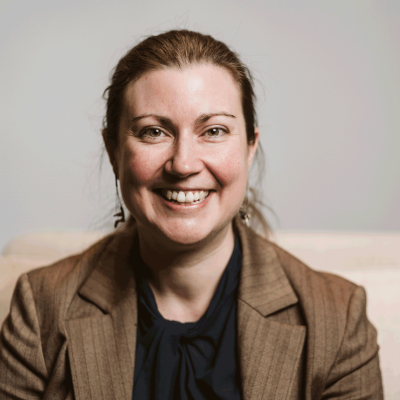Dr. Hippman's research focuses on postpartum care and those who need Parent-Infant Psychiatric Units (PIUs). She hopes to better help meet the needs of women and gender-diverse people living with serious postpartum mental illness.

Research topic
Research Description
The focus of my current fellowship has been on understanding the experiences of people who need hospitalization for postpartum mental illness in Western Canada. Postpartum depression is common and increases the risk for suicide. Research shows that 10–15% of women, and even up to 50% of Indigenous and immigrant women, experience postpartum depression. Postpartum psychosis is rarer (~1/1000 women), but is a psychiatric emergency. Birthing people with postpartum psychosis or severe postpartum depression need a high level of care, for example, what is available in a hospital, to protect their health, and the health of their families. Currently in Canada, these hospital stays separate birthing people from their babies, which can be traumatic for both parent and baby. In other countries, Parent-Infant Psychiatric Units (PIUs) admit both parent and infant for care.
My fellowship research has been investigating whether PIUs are suitable for Canada, or whether another model of care would be better for Canadian families. To do this, we have been conducting two sub-studies, in collaboration with a lived experience advisory group and a researcher/clinician advisory group. We are currently recruiting for Sub-study 1, which will amplify birthing people's stories of their experiences of hospital stays for postpartum mental illness in Western Canada (British Columbia, Alberta, and Saskatchewan). For Sub-study 2, we have used large administrative datasets from data collected through medical records in BC to describe the frequency and predictors of hospitalization for postpartum mental illness in BC at the population level. By understanding how to best meet the needs of women and gender diverse people living with serious postpartum mental illness, in the context of their families and communities, we aim to improve mental health outcomes across generations.
Why did you decide to pursue a postdoctoral fellowship at UBC? Did you consider other opportunities?
I consider myself very fortunate to have had opportunities to do postdoctoral fellowships at BC Children’s and Women’s Hospital, the University of Calgary, and the University of British Columbia. I have been able to benefit from supervision by clinical experts who are national leaders in the fields of reproductive and infant psychiatry, gaining invaluable insights into the perspectives of patients and their clinical caregivers, through my fellowship at BC Children’s and Women’s Hospital. I am growing as a qualitative researcher, learning a new methodology (interpretative phenomenological analysis), in my fellowship at the University of Calgary. My fellowship at UBC complements those fellowships, supporting my development as a multi-method investigator with Big Data analytic skills under the expert mentorship of Dr. Gillian Hanley.
What specifically attracted you to your research group?
Dr. Gillian Hanley’s reputation as an outstanding mentor, with values that are strongly aligned to mine, and the desire to learn from her exceptional skill in teasing apart Big Data to understand nuances in health outcomes in the area of perinatal mental health.
What advice do you have for new postdoctoral fellows?
I found it really worthwhile to do some deep self-reflection and draft a research vision and mission for myself. I used the book How to be a happy academic by Clark & Sousa, and have continued to go back to it during different stages of my postdoctoral fellowships. Having a really clear understanding of your career goals can help you decide which requests and opportunities you should pursue, and which you should decline. Be vigilant about saying no to requests that don’t align with your career goals!
What do you like to do for fun?
I have tap danced since I was 3 years old, and the tap community in Vancouver is wonderful. I love tap dancing at The Rhythm Room, and last year I joined the Rhythm Room Flash Mob as well. This January I also joined the Spotlight choir at Chorus Studio, and adore singing pop songs and songs from musicals. Playing board or card games, going for walks in nature, reading, and swimming are regular activities with my husband and two kids.
What is the most enjoyable aspect of your postdoctoral fellowship?
Honestly, it’s difficult to choose just one thing. The two overarching themes regarding what has been most enjoyable have been building relationships and learning new skills. My fellowship work uses an integrated knowledge translation approach, which relies on relationships, and it has been a privilege to work with passionate lived experience consultants, researchers, and clinicians, who care so deeply about improving mental health care for people in the postpartum period. Additionally, the time as a postdoctoral fellow is a really unique career stage where you have a great deal of freedom to prioritize learning new skills and I have been trying to make the most of it.
What does receiving this award mean for your career?
I am thrilled that the value of my work has been recognized with this award. This external recognition energizes me to continue striving towards my goal to become an independent investigator with a mission to improve mental health at times of transition in relation to changes in hormones, physiology, and family composition through feminist, person-centred research and advocacy for equitable access to mental health services.